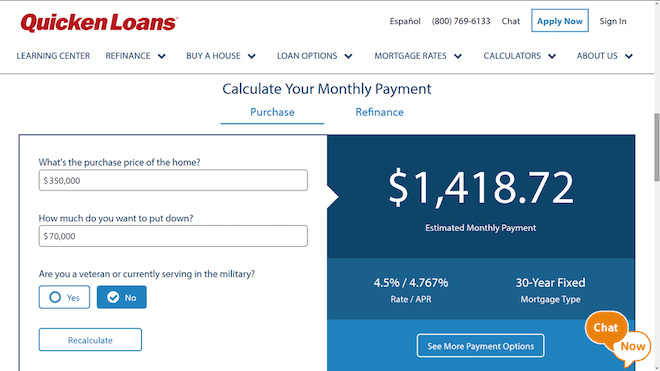

On the other hand, a mortgage company can offer fast closings, product availability, and loan originator expertise.

Do be sure to make sure that the bank does service their own loans.
Quicken loans vs amerisave full#
So which do you choose? A full service bank ensures your loan will stay with the same company for the entire term. A loan servicer cannot change the interest rate, fees or any other aspect of the loan. If this happens to you, don’t worry. The loan documents you signed with your original lender are legally binding for the life of the loan. You should note that your mortgage lender may sell your loan to another institution after closing. The other advantage to fast closings is that rates and fees are cheaper for shorter rate lock terms. In a competitive real estate environment, the ability to close a loan on time is vital. This is a great advantage, meaning your loan can close quicker. Because these companies only service mortgage loans, they can streamline their process much better than a bank. Unlike a mortgage “broker,” the mortgage company still closes and funds the loan directly. This way, they have access to loan programs that are structured and offered by a variety of loan servicers, usually big national banks. But if your situation does not fit within their criteria, they will decline your loan. Banks structure their own loan programs within guidelines set by Fannie Mae, Freddie Mac, FHA and VA. First, they probably have access to a wider range of loan products than a full service bank. There are some specific advantages to using a mortgage company for your loan. Pros and Cons of Getting a Mortgage With a Mortgage Company Many see this as an advantage to using a full service bank. So after your loan closes, you will still make monthly payments to the same bank that originated the loan. You should note, however, that lending standards could be stricter because of federal compliance and reporting laws.ĭue to the scope of a bank’s financial activities, most banks service their mortgage loans. These may include lower rates and specific loan programs targeting self-employed homebuyers and investors. Pros and Cons of Getting a Mortgage With a BankĪ bank could offer you special benefits as a customer. Once a loan originator obtains a state license, they must renew each one annually. These tests stress an understanding of the business and consumer protection laws. They must pass two examinations: A national exam and an exam for each state in which they want to practice. To work at a mortgage company, however, a loan originator needs extensive training. However, the FDIC does not require the loan originator to demonstrate any specific knowledge of mortgage practices or programs. They also must be fingerprinted and checked for any criminal background. Anyone with a history of financial crime such as fraud cannot practice mortgage origination. To be a loan originator at a bank, one needs to register with the Nationwide Mortgage Licensing System (NMLS). Mortgage loan originators go through very different processes between federally chartered banks and mortgage companies. However, this might not be a deal breaker for some people. In addition, using a mortgage company means you won’t be able to consolidate all of your financial accounts at one institution. These regulations are considerably more stringent as well. On the other hand, individual states regulate mortgage companies. The Federal Deposit Insurance Company (FDIC) regulates and audits full service banks. Mortgage loans are simply one aspect of their business. Many also offer investment and insurance products. They offer mortgage loans along with other banking products like checking and savings accounts and business and commercial loans. Definition of Banks and Mortgage Companiesįull service banks are known as federally chartered financial institutions.


 0 kommentar(er)
0 kommentar(er)
